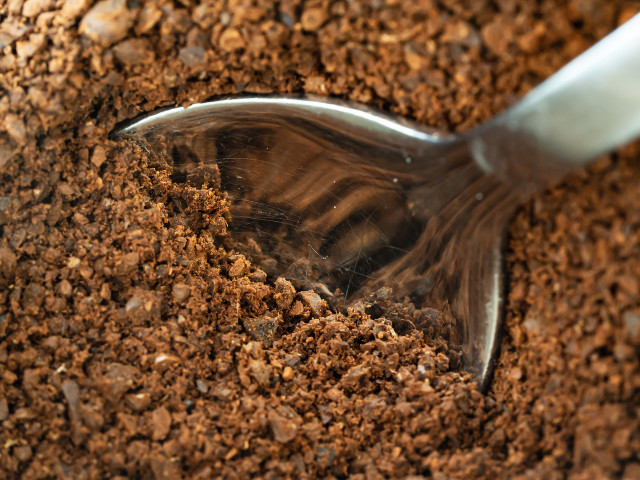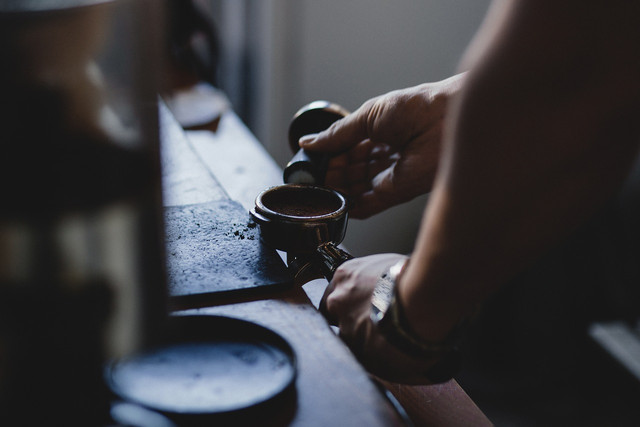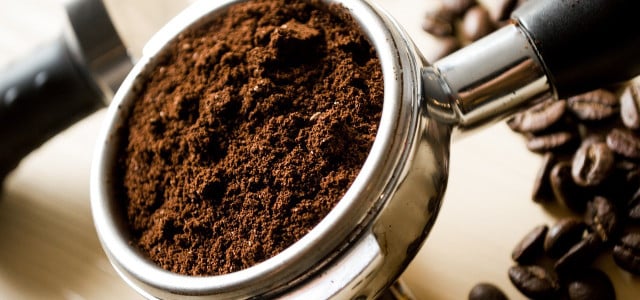Is it okay to pour your coffee grounds down the sink? It’s important to keep in mind some best practices when brewing up your favorite hot, delicious beverage.
An estimated 88% of Americans drink between one and five cups of coffee per day. The energy-boosting drink is popular at work, in homes and in social settings.
Many people dispose of coffee grounds down sinks or in the trash. While these are certainly easy ways to get rid of the grounds, they’re not particularly eco-friendly. When you toss coffee waste in the trash, it gets sent directly to the landfill, which can negatively impact the environment. That is because landfills release methane as waste decomposes.
With that in mind, it is important to think about how you deal with your kitchen and food waste. Do you really want to contribute to existing problems with landfills, or harm the environment by rinsing your coffee grounds down the sink? Read on for the solution to this problem.
Should You Put Coffee Grounds Down Sinks?

Although it’s convenient — unfortunately, no, you should not dispose of coffee grounds down the sink. In addition to the environmental considerations, coffee grounds can clump up, leading to plumbing issues and clogged pipes.
Coffee grounds can also combine with other improperly disposed-of substances like oils and grease, forming even worse clogs. Major culprits for drain blockage include cooking oil, butter, sauces, food scraps, rags, dairy products and fat from cooked meats.
In addition to blocked pipes, washing coffee grounds down the sink uses excessive water and increases your water bill. Clean and safe drinking water also requires energy, time and money — why waste that harming your plumbing?
Instead, there are plenty of sustainable home and garden uses for coffee grounds. Take a look at the easy alternatives below.
How You Can Reuse Coffee Grounds



When you’ve finished your morning caffeine hit, don’t dispose of the coffee grounds in the kitchen sink. There are plenty of sustainable alternatives. One of the best options is to throw your coffee grounds and paper filters in the compost. You can also try these other options:
- Garden: Adding used coffee grounds to your soil can provide nutrients such as potassium and nitrogen — two key minerals for plant growth.
- Removing odors: Pop your leftover coffee grounds in a small open container to neutralize unwanted odors in your fridge.
- Crafts: Use the grounds to dye paper, giving it a weathered “antique” look.
- Plants: You can also give leftover coffee grounds to your mature plants. Some plants that like coffee grounds include hydrangeas, blueberries, carrots, rhododendrons, azaleas and radishes. However, tomatoes don’t like coffee grounds. Read up on the details of your specific plants. You should also make sure coffee grounds are right for the type of soil you have. The higher acidity levels may hurt your plants instead of helping them.
Taking any of the above approaches instead of washing coffee grounds down sinks benefits your plumbing, pocketbook and the planet.
Read more:
- Why Climate Change Will Make Coffee Rare
- Best Way to Store Coffee Beans
- Fair Trade Coffee: 9 Brands to Start Your Day
Do you like this post?






